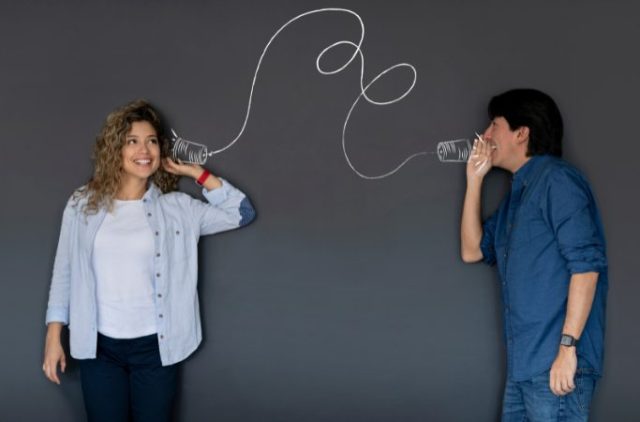The Importance of Honesty in a Relationship
By Wilbert S
January 10, 2024 • Fact checked by Dumb Little Man

In today’s fast-paced world, relationships often suffer due to lack of time, attention, and most crucially, honesty. Honesty is not just a virtue but a cornerstone in the architecture of love and trust. Honesty in a relationship is like the rudder of a ship that navigates the complexities of emotions, personal boundaries, and mutual respect. Without it, even the most seemingly stable relationships can veer off course and run aground.
A lack of honesty can manifest in various ways, from small white lies to serious betrayals. When honesty is absent, trust — the very bedrock of a romantic relationship — is often the first casualty. Disrupting this trust can lead to a domino effect that undermines the relationship’s strength and longevity. As we journey through the nuances of why honesty is pivotal, you’ll come to understand that maintaining a consistent honest line of communication is more than a nice-to-have; it’s a must-have for any successful relationship.
Honesty Builds Trust

Trust is the foundation upon which the house of a successful relationship is built. It’s the invisible bond that holds two people together through the highs and lows of life. To build real trust, there is no substitute for honesty in a relationship. Being consistently honest with your partner deepens emotional ties and fosters a sense of security. When you know you can rely on someone, the relationship moves to a richer level where both partners can be their genuine selves.
However, building trust through honesty isn’t an overnight achievement; it’s a sustained effort. Trust flourishes in an environment where both individuals are not just honest but also transparent. Open communication about one’s own feelings, aspirations, and even fears cultivates more trust. Over a measured period, this form of honest interaction creates a much more solid foundation that withstands the various stresses and strains that every relationship undergoes.
>> Also Read: Broken Trust: Rebuilding Relationships in the Aftermath of Betrayal
Open Communication Vs. White Lies
In the arena of romantic relationships, open communication serves as a conduit for healthy communication and mutual understanding. Honest and transparent conversations allow for a more genuine connection, making partners feel seen and heard. Research from Northwestern University supports this by showing that couples who maintain an honest line of dialogue report smoother interactions. In such an environment, each partner feels comfortable sharing their innermost thoughts and feelings, thereby enriching the relationship’s emotional fabric.
However, the question of white lies presents a nuanced challenge. While the intention might be to protect the other person’s feelings, these seemingly harmless untruths can erode trust in a relationship over time. The key is to strike a balance between honesty and sensitivity. Being overly critical can harm the relationship just as much as destructive behavior. A non-judgmental attitude allows for honest communication without causing unnecessary harm, laying the groundwork for a much more solid foundation in the relationship.
Emotional Vulnerability

Opening up your internal world to your romantic partner is an act of emotional courage that invites deeper intimacy. Creating a safe space where both parties can be vulnerable serves as a trust-building exercise that enhances the relationship’s strength. This level of openness allows both partners to discuss their fears, aspirations, and even their own triggered reactions without the fear of judgment or backlash.
The benefits of emotional vulnerability are multifold. First, it provides room for healthy communication, allowing for discussions about all aspects of one’s emotional life. Sharing your own emotions and triggers can help your partner understand you better, fostering a richer level of communication. This leads to improved empathy, a key element in enhancing the quality of interactions and in resolving conflicts more effectively. Overall, a vulnerable emotional environment leads to a more fulfilling and authentic relationship.
The Downside of Dishonesty
Dishonesty in a relationship is a slippery slope that can have lasting consequences. From telling lies to engaging in outright abusive behavior, dishonest acts erode the very foundation of trust. When one partner starts hiding things, such as sifting through the other’s phone without consent, it induces feelings of insecurity and hurt. This betrayal not only affects the relationship’s integrity but also demonstrates a serious lack of self-control on the part of the dishonest individual.
The ramifications of dishonesty go beyond immediate emotional pain; they can escalate into destructive behavior. This can include emotional manipulation, justifying one’s actions wrongfully, or even becoming overly critical to justify destructive behavior. In the long run, such actions create a toxic environment that makes building real trust nearly impossible. As a result, the relationship is left vulnerable to further damage, making it difficult to maintain a solid foundation for emotional and relational growth.
The Complexity of Honesty

Honesty is a complex construct that extends beyond merely stating facts or truths. It literally means understanding your own internal world and its impact on the relationship. For example, being aware of how your own triggered reactions or mood can influence your behavior and conversations with your partner. Moreover, the concept of a measured period for honesty is critical; timing is key when it comes to sharing sensitive information or emotions. Not every situation warrants brutal honesty, and discernment is crucial.
People often resort to dishonesty for reasons other than malicious intent. Sometimes, the dishonest act may be a reflexive response to a bad mood or as a way to manage their own triggered reactions. Understanding this can help differentiate between occasional lapses in honesty and a pattern of deceitful behavior. It is vital to recognize these nuances to ensure that honesty serves its true purpose: to create a solid foundation for a successful relationship.
Honesty and Emotional Health
The link between honesty and emotional well-being is stronger than one might initially think. Echoing Author George Orwell, who saw truth-telling as a form of rebellion in deceitful times, the importance of honesty extends into our emotional health. Research suggests that honesty means not only a richer level of interaction within relationships but also improved relating that can positively affect one’s overall health. The stress of maintaining lies or hiding your true self can lead to both mental and physical strain, affecting the quality of your life.
In a romantic relationship, being honest fosters a sense of security and healthy communication. Partners who are generally comfortable being truthful with each other tend to experience less emotional turbulence and a more stable emotional climate. This emotional balance promotes better mental health for both individuals, reinforcing the notion that honesty is more than a moral duty; it’s a pathway to a healthier, more fulfilling life.
How To Be More Honest

Share Feelings
Creating a safe space for open dialogue is the first step to being more honest in a relationship. In such an environment, both partners can share feelings freely, without the fear of judgment or backlash. This non-judgmental atmosphere fosters healthy communication, enabling each partner to explore all the different sides of their emotions. Over time, this practice can lead to improved relating and a stronger emotional bond between partners.
Respect
Respect is the cornerstone for any successful relationship and plays a vital role in enhancing honesty. True respect makes each person in the relationship generally comfortable and willing to fully trust the other. When mutual respect is present, both partners feel secure enough to be honest without fearing negative repercussions. This trust and comfort lead to a much more solid foundation, enriching the relationship on multiple levels.
Mindful Communication
Mindful communication is the ability to be attuned not just to your own feelings but also to your partner’s internal world. While you don’t have to be a mind reader, a level of empathy and understanding can go a long way. Being aware of how your partner feels or what they might be thinking invites a richer level of communication. This heightened level of understanding enhances the overall quality of interactions, helping each partner to feel seen, heard, and valued.
Conclusion
In conclusion, honesty in a relationship is far from optional; it’s a fundamental necessity for building a successful relationship. Honesty is instrumental in building trust, fostering open communication, and creating a safe space for emotional vulnerability. However, its complexity shouldn’t be underestimated. It requires a balanced approach to ensure that it doesn’t devolve into being overly critical or serve as an excuse to justify destructive behavior. The practice of being honest isn’t just a gift to your relationship; it also significantly contributes to your overall well-being.
Recognizing the multifaceted role of honesty and implementing these insights into your relationship dynamic can have lasting benefits. You are not just making occasional improvements; you are laying a much more solid foundation for your romantic relationship. This foundation will be built on the cornerstone principles of honesty, trust, and respect, leading to a more fulfilling and resilient partnership.
>> Also Read: Green Flags in a Relationship: Unpacking Signs of a Healthy Partnership
FAQs: Honesty in a Relationship
Can white lies be justified in a relationship?
White lies often present a moral dilemma in relationships. While they may be told with the intention of protecting a person’s feelings, they can also undermine trust in a relationship over time. The key is to weigh the potential harm against the potential benefit and to maintain a non-judgmental attitude when discussing why the white lie was told.
How do I balance being honest without being overly critical?
Honesty and criticism are not the same. The goal should always be constructive and open communication. Being overly critical can be as damaging as dishonesty because it can erode trust and create a toxic atmosphere. To avoid this, focus on mindful communication, expressing your thoughts and feelings in a way that encourages dialogue rather than shuts it down.
What if my partner doesn’t value honesty as much as I do?
Mismatched values around honesty in a relationship can be a red flag. If one partner values honesty highly while the other is more relaxed about it, it may lead to destructive behavior or erode trust over time. Addressing the issue directly, perhaps with the aid of a relationship counselor, can help both partners come to an understanding or reconsider the relationship’s strength and future.
Wilbert S
Wilbert is an avid researcher and is deeply passionate about finance and health. When he's not working, he writes research and review articles by doing a thorough analysis on the products based on personal experience, user reviews and feedbacks from forums, quora, reddit, trustpilot amongst others.






